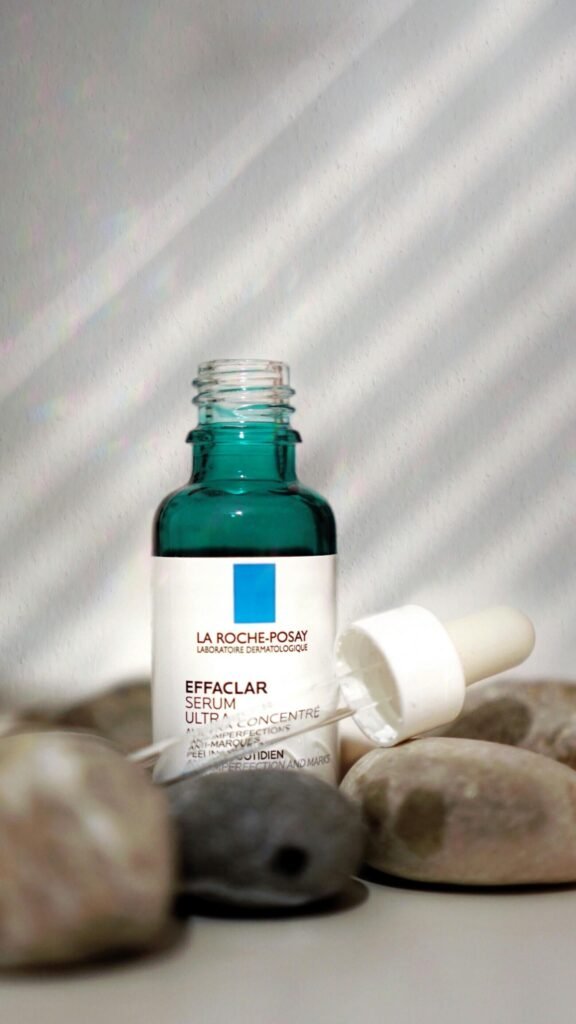You’ve probably heard countless claims about the wonders of supplements when it comes to boosting your immune function. But do these claims hold any truth? In this article, we’ll explore the topic of whether supplements can really enhance your immune system and provide you with the information you need to make an informed decision about their usefulness. So, let’s dive into the world of supplements and immune function to separate fact from fiction.

Overview of Immune Function and Supplements
Understanding immune function
Your immune system is a complex network of cells, tissues, and organs that work together to defend your body against harmful pathogens and foreign invaders. It plays a crucial role in maintaining your overall health and well-being. The immune system consists of two main components: the innate immune system and the adaptive immune system. The innate immune system provides immediate, non-specific defense mechanisms, while the adaptive immune system develops more specific defenses over time.
Role of supplements in supporting immune function
Supplements can play a supportive role in maintaining and enhancing your immune function. While they are not a magical solution to prevent or cure diseases, certain vitamins, minerals, and other substances have been shown to support a healthy immune system. It is important to note that supplements should not replace a balanced diet and a healthy lifestyle, but they can be used as a complement to support your immune function.
Types of Supplements and Their Effects on Immune Function
Vitamin C
Vitamin C is well-known for its role in supporting immune function. It is a powerful antioxidant that helps protect cells from damage caused by harmful free radicals. Additionally, vitamin C plays a crucial role in the production of white blood cells, which are essential for fighting off infections. While it is widely available in many fruits and vegetables, supplementation with vitamin C can help boost your immune system, especially during times of increased stress or when dietary intake is insufficient.
Vitamin D
Vitamin D is another essential nutrient that plays a critical role in immune function. It is mainly synthesized in the skin when exposed to sunlight, but it can also be obtained from certain foods and supplements. Vitamin D helps regulate the immune response by promoting the production and function of immune cells. Deficiency in vitamin D has been associated with an increased susceptibility to infections and a weakened immune system. Supplementing with vitamin D may be particularly beneficial for individuals with limited sun exposure or those living in regions with limited sunlight.
Zinc
Zinc is a mineral that is involved in numerous physiological processes, including immune function. It helps activate immune cells, supports the development and function of white blood cells, and assists in the production of antibodies. Adequate zinc levels are crucial for a well-functioning immune system. While zinc can be found in a variety of foods, including meat, seafood, and legumes, supplementation may be beneficial for individuals with zinc deficiency or those who have difficulty meeting their daily zinc requirements through diet alone.
Probiotics
Probiotics are live bacteria and yeasts that are beneficial for your gut health. They help maintain a healthy balance of bacteria in your digestive system, which in turn supports immune function. The gut is home to a large portion of your immune system, and a healthy gut microbiota is essential for optimal immune function. Probiotic supplements can help replenish and promote the growth of beneficial bacteria, helping to strengthen your immune system and protect against certain infections.
Echinacea
Echinacea is an herb that has been traditionally used to support immune function. It is believed to stimulate the production of white blood cells, enhance immune response, and reduce the duration and severity of colds and respiratory infections. While the exact mechanisms of action are not fully understood, some studies have shown that echinacea may have modest benefits in reducing the risk of upper respiratory tract infections. However, more research is needed to determine its true efficacy and optimal dosage.
Scientific Evidence on Supplement Efficacy
Research on Vitamin C and immune function
Numerous studies have explored the relationship between vitamin C and immune function. While vitamin C supplementation may not prevent the common cold, it has been shown to reduce the duration and severity of symptoms. Vitamin C has also been found to enhance several immune cell functions, such as phagocytosis, the ability of immune cells to engulf and destroy pathogens. However, it is important to note that megadoses of vitamin C may not provide additional benefits and may even cause gastrointestinal discomfort.
Studies on Vitamin D and immune health
Research has demonstrated a clear link between vitamin D deficiency and an increased risk of infections. Vitamin D plays a vital role in regulating the immune response and promoting the production of antimicrobial peptides. Some studies suggest that vitamin D supplementation can reduce the risk of respiratory tract infections, particularly in individuals with low vitamin D levels. However, more research is needed to determine the optimal dosage and its effectiveness in different populations.
Zinc and its effects on the immune system
Zinc is involved in various immune functions, including the development and activation of immune cells, the production of antibodies, and the regulation of inflammatory responses. Zinc deficiency compromises immune function and increases the susceptibility to infections. Supplementation with zinc has been shown to reduce the incidence and duration of respiratory tract infections, especially in children. However, excessive zinc intake can be harmful, so it is important to follow recommended dosage guidelines.
Probiotics for immune support
The gut microbiota has a significant impact on immune function, and probiotics help maintain a healthy balance of beneficial bacteria in the gut. Some studies have shown that probiotic supplementation can reduce the risk and duration of respiratory tract infections, especially in children and older adults. However, the strain, dosage, and duration of probiotic use can affect its efficacy, and more research is needed to determine the optimal formulations for immune support.
Echinacea’s impact on immune response
Echinacea has been traditionally used to support immune function and reduce the severity of colds and respiratory infections. While some studies suggest that echinacea may have mild benefits in reducing the risk of upper respiratory tract infections, the evidence is mixed and more research is needed to establish its true efficacy. Additionally, different preparations and dosages of echinacea may yield varying results, making it crucial to choose high-quality products and follow recommended usage guidelines.
Considerations for Supplement Use
Dosage and timing
When taking supplements to support immune function, it is essential to follow the recommended dosage instructions provided on the product label or as advised by your healthcare professional. Taking excessive amounts of certain supplements can be counterproductive or even pose health risks. Additionally, the timing of supplement intake may also influence their effectiveness. Some supplements, such as vitamin C, are best taken regularly to maintain adequate levels in the body, while others, like zinc, may be more effective when taken at the onset of illness.
Quality and safety
Not all supplements are created equal, and it is important to choose reputable brands that adhere to strict quality standards. Look for third-party certifications and quality seals to ensure that the product has undergone rigorous testing for potency, purity, and safety. Additionally, consulting with a healthcare professional can help you select supplements that are appropriate for your specific needs and reduce the risk of potential interactions or adverse effects.
Individual differences
It is important to remember that individual responses to supplements may vary. What works for one person may not work for another, and certain supplements may be more effective in specific populations or health conditions. Factors such as age, underlying health conditions, medications, and genetic variations can all influence how supplements interact with your immune system. Consider your unique circumstances and consult with a healthcare professional for personalized advice.

Lifestyle Factors and Immune Function
Exercise and immune health
Regular exercise has been shown to have numerous benefits for immune function. It helps improve blood circulation, reduce inflammation, and enhance the production and activity of immune cells. Engaging in moderate-intensity exercise, such as brisk walking or cycling, for at least 150 minutes per week can significantly strengthen your immune system and reduce the risk of infections. However, it is important to balance exercise with adequate rest and recovery, as excessive exercise can actually suppress immune function.
Diet and nutrition
A healthy, balanced diet is crucial for supporting optimal immune function. Consuming a variety of fruits, vegetables, whole grains, lean proteins, and healthy fats ensures that you obtain essential nutrients that support immune health, such as vitamins A, C, E, and zinc. It is also important to limit the intake of processed foods, added sugars, and unhealthy fats, as they can have a negative impact on immune function. Additionally, staying adequately hydrated is essential for maintaining a strong immune system.
Stress management and immune system
Chronic stress can weaken your immune system and make you more susceptible to infections. High levels of stress hormones, such as cortisol, can suppress immune cell function and decrease the production of antibodies. Engaging in stress management techniques, such as meditation, deep breathing exercises, regular sleep, and nurturing social connections, can help reduce stress levels and support a healthy immune system. Taking time for self-care and finding healthy coping strategies will contribute to your overall well-being.
Potential Risks and Side Effects
Interactions with medications
Certain supplements may interact with medications, potentially reducing their effectiveness or causing adverse effects. For example, vitamin K supplements can interfere with blood-thinning medications, while excessive zinc intake can decrease the absorption of certain antibiotics. If you are taking any medications, it is important to consult with your healthcare professional before starting any new supplements to ensure they are safe to use together.
Allergic reactions
Some individuals may have allergies or sensitivities to certain supplements. Common allergens in supplements include fish, shellfish, soy, dairy, and gluten. It is important to carefully read product labels and consult with a healthcare professional if you have any known allergies or sensitivities. If you experience an allergic reaction, such as itching, hives, or difficulty breathing, discontinue the use of the supplement and seek immediate medical attention.
Overdosing and toxicity
Taking excessive amounts of certain supplements can lead to toxicity, which can cause adverse effects and potentially be life-threatening. Fat-soluble vitamins, such as vitamins A, D, E, and K, can build up in the body and reach toxic levels when consumed in excessive amounts over time. Water-soluble vitamins, such as vitamin C and certain B vitamins, are generally considered safe at high doses, as excess amounts are excreted through urine. However, it is still important to follow recommended dosage guidelines and seek professional guidance if you are unsure.

The Importance of a Balanced Approach
Supplements are not a substitute for a healthy lifestyle
While supplements can play a supportive role in maintaining immune function, they should not replace a healthy lifestyle. No amount of supplements can compensate for poor dietary choices, lack of exercise, chronic stress, or unhealthy habits. It is crucial to prioritize nutritious food choices, regular physical activity, stress management, and adequate sleep to ensure a well-rounded approach to immune health.
Consultation with healthcare professionals
Before starting any new supplements, it is advisable to consult with a healthcare professional, such as a doctor or registered dietitian. They can assess your individual needs, provide personalized recommendations, and address any concerns or potential interactions. Healthcare professionals can also guide you in selecting high-quality supplements that are appropriate for your age, sex, health conditions, and lifestyle factors.
Ensuring a well-rounded approach to immune function
Supporting your immune function goes beyond taking supplements. It is important to prioritize overall health and well-being by adopting a balanced lifestyle. This includes eating a nutrient-rich diet, engaging in regular exercise, managing stress, getting adequate sleep, practicing good hygiene, and avoiding excessive alcohol consumption and smoking. By focusing on these foundational pillars, you can strengthen your immune system and enhance your overall health. Remember, a comprehensive and holistic approach is key to maintaining a robust immune system.
In conclusion, while supplements can play a role in supporting immune function, they are not a cure-all solution. Vitamin C, vitamin D, zinc, probiotics, and echinacea are among the supplements that have been studied for their potential benefits on immune health. Scientific evidence suggests that these supplements may have positive effects on immune function, but individual responses and efficacy can vary. It is important to follow recommended dosage guidelines, choose high-quality products, and consult with healthcare professionals for personalized advice. Additionally, maintaining a healthy lifestyle, including regular exercise, a balanced diet, stress management, and adequate sleep, is crucial for optimal immune function. Remember, the key to a strong immune system is a well-rounded approach that addresses all aspects of your health.
